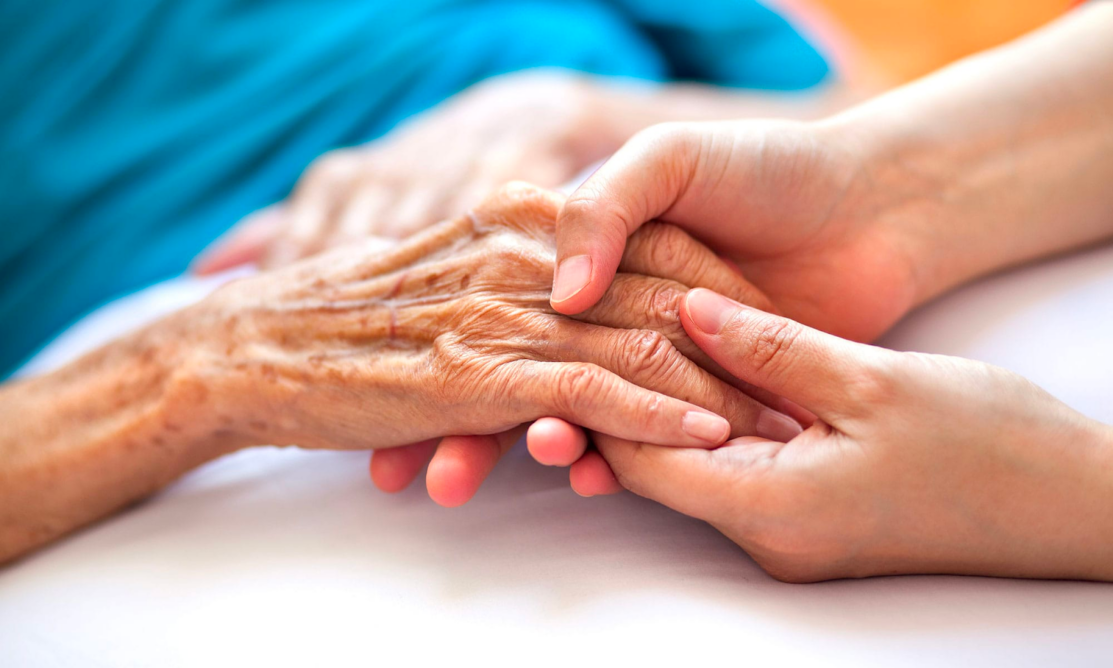Palliative Care vs End of Life Care: What’s the Difference?

When it comes to the challenging and sensitive topic of caring for individuals with serious illnesses, understanding the distinction between palliative care and end of life care is crucial. Both types of care share a common goal of improving the quality of life for patients, but they have unique characteristics and focuses. Let’s explore the concept of palliative care in more detail.
Understanding the Concept of Palliative Care
Palliative care is a specialised approach that aims to provide relief and support for individuals facing serious illnesses. It focuses on improving the quality of life for patients and their families by addressing the physical, emotional, social, and spiritual challenges associated with the illness.
In addition to addressing the physical symptoms of a serious illness, palliative care recognises the importance of attending to the emotional well-being of patients. Coping with a serious illness can be mentally and emotionally draining, and palliative care professionals are trained to provide the necessary support and guidance to help patients navigate these challenges.
Furthermore, palliative care also acknowledges the impact of the illness on the social aspects of a patient’s life. It recognises the importance of maintaining social connections and relationships, and aims to provide the necessary resources and assistance to ensure patients can continue to engage with their loved ones and communities.
Lastly, palliative care recognises the significance of spirituality in the lives of patients. Whether through religious beliefs or personal philosophies, spirituality can provide comfort and solace during difficult times. Palliative care professionals are trained to respect and support patients’ spiritual needs, offering guidance and resources to help them find meaning and peace.
The Main Goals of Palliative Care
The primary objectives of palliative care are to alleviate pain, manage symptoms, and enhance comfort for patients. This holistic approach recognises that addressing the physical needs alone is not sufficient to ensure overall well-being. Palliative care aims to promote a sense of dignity, peace, and emotional well-being for patients, regardless of their prognosis.
One of the key goals of palliative care is to effectively manage pain. Pain can be a significant burden for patients with serious illnesses, and palliative care professionals are trained in various techniques and medications to help alleviate pain and improve overall comfort. By effectively managing pain, patients can experience a better quality of life and focus on other aspects of their well-being.
Another important goal of palliative care is to manage symptoms associated with the illness. Depending on the condition, patients may experience a range of symptoms such as nausea, fatigue, shortness of breath, and depression. Palliative care professionals work closely with patients to identify and address these symptoms, using a combination of medications, therapies, and lifestyle adjustments to improve overall comfort and well-being.
Lastly, palliative care aims to enhance the overall comfort of patients. This includes providing a supportive and caring environment where patients feel heard, respected, and valued. Palliative care professionals prioritise open communication and collaboration with patients and their families, ensuring that their preferences and goals are taken into account when developing a care plan.
Who Can Benefit From Palliative Care?

Palliative care is not limited to individuals with terminal illnesses. It is suitable for anyone at any stage of a serious illness, regardless of their age. This form of care can significantly benefit patients with conditions such as cancer, heart disease, respiratory diseases, and neurological disorders, among others.
For individuals with chronic illnesses, palliative care can provide ongoing support and management of symptoms, helping them maintain a better quality of life. It can also offer emotional and psychological support to patients and their families, helping them navigate the challenges and uncertainties that come with a serious illness.
Even for individuals with curable illnesses, palliative care can play a crucial role in managing symptoms and side effects of treatments. It can provide a comprehensive approach to care, ensuring that patients receive the necessary support and resources to cope with the physical, emotional, and social impact of their illness.
It is important to note that palliative care can be provided alongside curative treatments, and is not mutually exclusive. In fact, integrating palliative care into the overall treatment plan can improve patient outcomes and overall well-being.
The Multidisciplinary Approach in Palliative Care
A key aspect of palliative care is its multidisciplinary approach. A team of healthcare professionals, including doctors, nurses, social workers, and chaplains, work together to address the various dimensions of patients’ needs. This collaboration ensures a comprehensive and personalised approach to care.
Doctors play a crucial role in palliative care, providing medical expertise and guidance in managing symptoms and pain. They work closely with patients and their families to develop a care plan that aligns with their goals and preferences.
Nurses are an integral part of the palliative care team, providing hands-on care and support to patients. They monitor symptoms, administer medications, and offer emotional support to patients and their families. Their expertise in managing pain and providing comfort is invaluable in ensuring the well-being of patients.
Social workers play a vital role in addressing the social and emotional needs of patients. They provide counselling, connect patients with community resources, and assist with practical matters such as financial planning and advance care planning. Social workers are trained to support patients and their families in navigating the complex healthcare system and accessing the necessary support services.
Chaplains, who are often part of the palliative care team, provide spiritual support to patients and their families. They offer a listening ear, provide guidance, and facilitate discussions around existential and spiritual concerns. Their presence can provide comfort and solace to patients, regardless of their religious or spiritual beliefs.
By working together, the multidisciplinary team in palliative care ensures that patients receive comprehensive and holistic support. Each member brings their unique expertise and perspective, contributing to a personalised care plan that addresses the physical, emotional, social, and spiritual needs of patients and their families.
Delving into End of Life Care
End of life care, as the name suggests, focuses on the period when patients have minimal or no treatment options available and are nearing the end of their lives. It aims to provide comfort, support, and dignity during this time.
The Primary Focus of End of Life Care
End of life care prioritises the comfort and well-being of patients as they approach the later stages of their illnesses. The primary goal is to manage pain and symptoms effectively while ensuring emotional support and spiritual guidance for both patients and their families.
The Role of Family in End of Life Care
One notable aspect of end of life care is the involvement of family members. They play a crucial role in decision-making, providing support, and participating in the care of their loved ones. End of life care acknowledges the importance of involving family members during this challenging period.
The Importance of Spiritual and Emotional Support
During end of life care, addressing the spiritual and emotional needs of patients becomes particularly significant. Chaplains, social workers, and counsellors are often involved in providing support and guidance to help patients find peace and meaning during their final stages of life.
Comparing Palliative and End of Life Care
While palliative care and end of life care share some similarities, they also have distinct differences that set them apart.
Similarities Between the Two Types of Care
Both palliative care and end of life care aim to improve the quality of life for patients, alleviate physical and emotional suffering, and provide holistic support. They both involve a multidisciplinary team of healthcare professionals who work together to address the patient’s needs.
Key Differences That Set Them Apart
One key difference between palliative care and end of life care is the timing. Palliative care can be initiated as soon as a serious illness is diagnosed, while end of life care becomes the focus when curative treatment is no longer effective. Additionally, end of life care may involve discussions regarding advance care planning and decisions around resuscitation, artificial nutrition, and life-support measures.
The Impact of Palliative and End of Life Care on Quality of Life
Both palliative care and end of life care have the potential to greatly improve the quality of life for patients during challenging times.
How These Care Options Can Improve Patient Comfort
Palliative care focuses on managing pain, alleviating symptoms, and enhancing overall comfort. By addressing physical and emotional distress, patients can experience a significant improvement in their well-being and a reduction in suffering.
The Psychological Benefits of Appropriate Care
Appropriate end of life care can provide tremendous psychological support to patients and their families. By addressing their emotional and spiritual needs, it helps patients find peace and acceptance, while their loved ones receive the support necessary to navigate the challenging emotions and decisions that arise.
Conclusion
In conclusion, understanding the differences between palliative care and end of life care is essential for individuals facing serious illnesses and their families. While both types of care share a common goal of improving patients’ quality of life, they have unique characteristics and focuses. Making an informed decision about which approach to choose can greatly impact the comfort, well-being, and dignity of patients during these challenging times.
If you’re looking to learn more, check out our end of life course that we have available.
Contact Us
For any information on our courses, please fill out the form to the right or call us on the number below.
